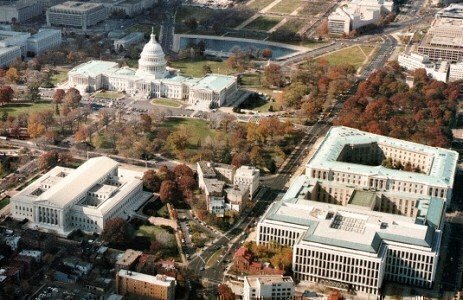On March 29, 1961, Ohio and Kansas voted to ratify the Constitution’s 23rd Amendment. Today, that amendment remains obscure and still controversial to a small, but critical, group of Americans
The 23rd Amendment allows the residents of the District of Columbia to vote in presidential elections, but only with the fewest possible amount of electoral votes. And perhaps more importantly, it didn’t grant District residents representation in Congress, which is still a sore point today.
The Constitution in Article 1, Section 8, gave Congress the power to “exercise exclusive Legislation in all Cases whatsoever, over such District (not exceeding ten Miles square) as may, by Cession of particular States, and the Acceptance of Congress, become the Seat of the Government of the United States.”
The federal District became a reality when Congress moved there from Philadelphia in 1800, but it never had the full-fledged rights that belonged to a state. The Organic Act of 1801 put the District fully under federal control.
In the 1950s, there were movements within the District for its residents to gain three sets of political and constitutional rights that had been denied by the Founders: the right to total Home Rule without congressional approvals, the right to representatives in the House and Senate, and the rights to representation in presidential elections.
By 1960, the desire for District residents to vote in presidential elections was the least controversial of the three desired rights. The numbers of Democrats and Republicans within the District were nearly balanced and the proposed constitutional amendment had strong support outside of the South. In 1960, about 54 percent of the District’s population was black; Tennessee was the only Southern state to approve ratification at the time.







